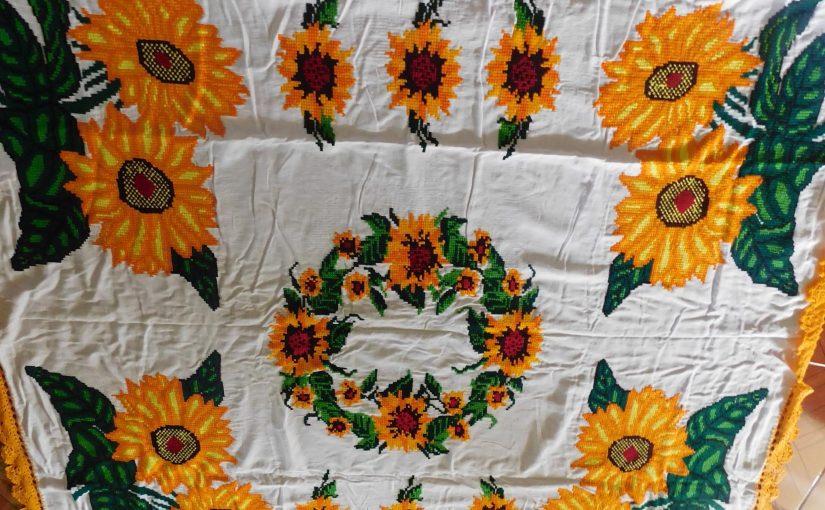This unit presents Nahuatl sounds. The goal is to familiarize yourself with the pronunciation of consonants and vowels. At this stage in your learning, it is okay if you have not mastered the correct pronunciations. You will get better with practice over the trajectory of this course.
Michel Launey wrote that “when writing phonetic units in Nahuatl, letters and combination of letters in Spanish have been used to transcribe the sounds that are similar or identical to Spanish” (Launey, 1992). Even though many sounds can be represented by phonemes in Spanish, there are some sounds that are particular and unique to the Nahuatl language. For example, although /cu/ [k] and /uc/ [kʷ], /hu/ [w] and /uh/ [w], /tl/ [tɬ͡], and /tz/ t͡s are written with two letters, they represent single consonant units.
| /cu/
[k] |
Like “qu” in “quest” |
|
/uc/ [kʷ] |
After a vowel, the first vowel is emphasized and the “u” and “c” are pronounced at the same time. It is important to avoid pronouncing the “u” as an additional vowel in construction, such as: “vowel” + “uc.”
For example, the word “teuctli” (lord/sir) is pronounced as “tēktli,” emphasizing the first vowel and silencing the “u.” |
| /hu/
[w] |
Like “wh” in “when” |
|
/uh/ [w] |
The pronunciation of “uh” follows the same pattern as “uc.”
For example, the word “cōuhqui” (she bought something) is pronounced as “cōhquī,” emphazising the first vowel and silencing the “u.” |
|
/tl/ [tɬ͡] |
Before a vowel, like “tl” in “atlas”
After a vowel and as a final marker, the “tl” is pronounced like a “t” with a silenced “l.” |
| /tz/
[t͡s] |
Like “tz” in “blitz” |
| /x/ [ʃ] | Like “sh” in “shower” |
| /n/ | Followed by other letters, the “n” is pronounced the same as in English. But when it is it a final position, the “n” is silent. |
Begin by reading the following examples. Go through all the vocabulary and repeat them out loud.
Tēntlatzacuilcayōtl (Consonants)
| ch | m | n | p | t | y | l |
| cu | uc | qu | hu | uh | h | |
| x | tl | tz | z |
Tēntzilincayōtl (Vowels)
| a | e | i | o |
Tlamānēxtilli tlen tēntlatzacuilcayōtl (Examples of Consonants)
/ch/
/m/
/n/
/p/
/t/
/y/
/l/
/cu/
/qu/
/h/
/hu/
/uc/
/uh/
/x/
/tl/
/tz/
/z/
Tlamanextilli tlen tentzilincayotl (Examples of vowels)
/a/
/e/
/i/
/o/

